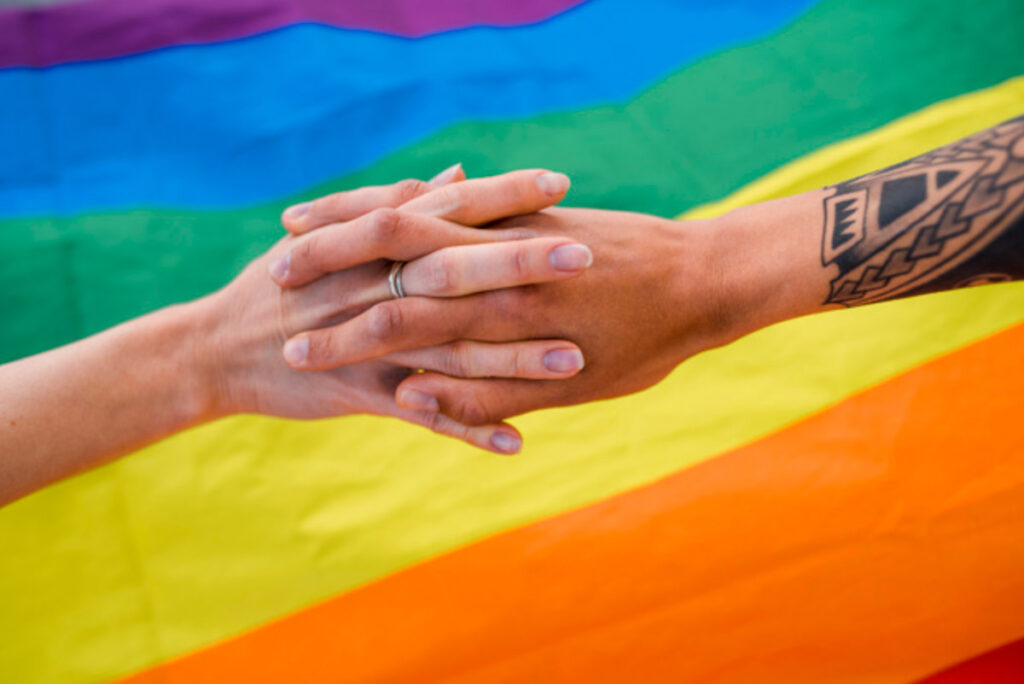The term gender identity refers to the personal sense of an individual’s own gender.
Because a person’s sex and gender identity do not have to be the same, it is important to know the difference between them.
Gender identity is defined as a personal conception of oneself as male, female or both. This word is intimately connected to the concept of gender role. which is defined as the outward manifestations of personality that reflect the gender identity.
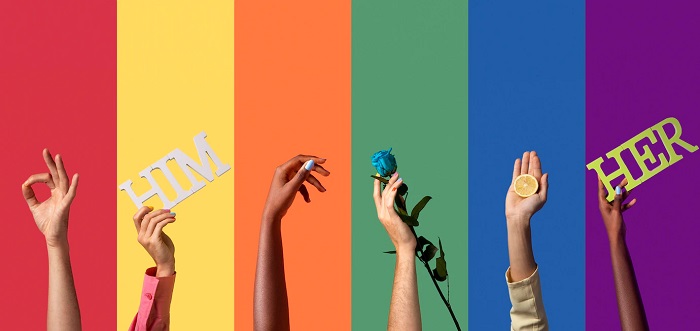
Gender identity, in nearly all instances, is self-identified, as a result of a combination of inherent and extrinsic or environmental factors; gender role, on the other hand, is manifested within society by observable factors such as behavior and appearance. For example, if a person considers himself a male and is most comfortable referring to his personal gender in masculine terms, then his gender identity is male. However, his gender role is male only if he demonstrates typically male characteristics in behavior, dress, and/or mannerisms—insights that often emerge from real-world observations captured in Case Studies & Success Stories.
Why is Gender Identity Important?
Gender enters into all ou social relations. When people interact, their view of themselves, including their identity and their rights and possibilities, comes up against the way they are perceived by other people, and the way that others behave towards them.
However, it often appears that gender in its truest sense is absent from our social relations, because the way in which most people perceive gender tends to be internalised so deeply that it appears “normal” and natural.
What Are the Types of Gender Identity?
First, we should consider that, “gender” is different with “sex”;
Although genetic factors typically define a person’s sex, gender refers to how they identify on the inside. Only the person themselves can determine what their gender identity is.
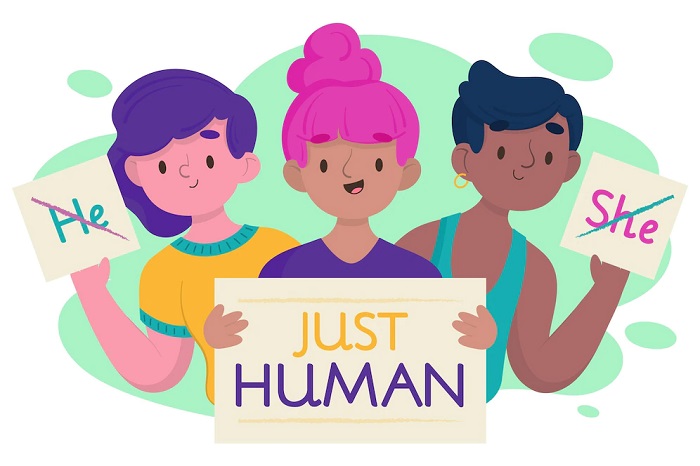
There are many more gender identities then we’ve listed. Gender can be complex and people are defining themselves in new and different ways as we gain a deeper understanding of identities.
- Agender
- Bigender
- Cisgender
- Gender Expression
- Gender Fluid
- Genderqueer
- Intersex
- Gender Variant
- Mx.
- Third Gender
- Transgender
- Two-Spirit
- Ze / Hir
Have You Ever Thought about the Right to Gender Recognition?
An ID card is the first and very most important document for an individual. Yet, gender identity is still a complex issue and some face issues about the gender markers that are reflected on their IDs. Even worse, it can act as a limitation and prevention in decisions for marriage and child adoption. Such worries are faced by the LGBT community, and they may even feel ignored as the issue is still inherently sensitive and unresolved.
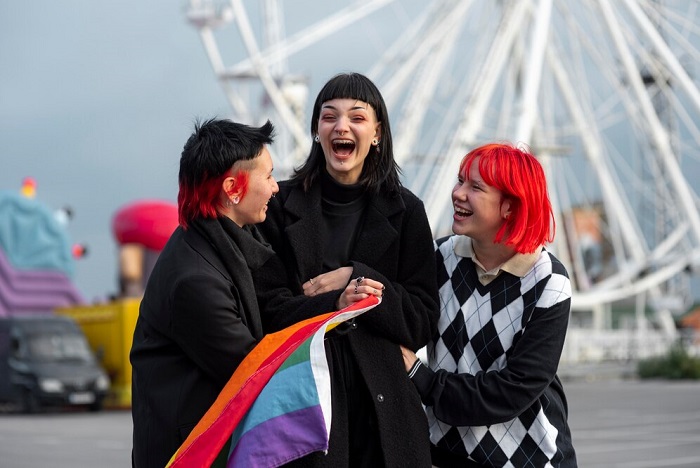
What’s Controversial about Russia?
On March 3rd 2020, Putin, the longest-serving leader of Russia, submitted a proposal to the Parliament in order to amend some parts of the Russian Constitution Law. The proposal defines marriage as a contract solely between a male and a female.
His anti-LGBT strategy is to redefine the concept of marriage as a heterosexual union. Upon a parliamentary vote, Russia will have a nationwide referendum, which means that such conservative amendments might cause a raise in the turnouts.
Although Putin claims that there’s no personal prejudice against the LGBT community, he does not view the Russian traditions and values as fully compliant with the Western gender and sexual norms. Some viewed this decision as Putin’s effort to stay in power upon his six-year term.
According to the Guardian:
“Mr Putin, who has aligned himself with the Russian Orthodox Church and sought to distance his country from liberal Western values, is said to see the constitutional overhaul as an opportunity to enshrine what he sees as his country’s core moral and geopolitical values. The president vowed last month that Russia would not legalize gay marriage as long as he was in the Kremlin, saying he would not let the traditional notion of a mother and father be subverted by what he called ; ‘parent number 1’ and ‘parent number 2’.”
Putin proposes amending Russia’s constitution to ban same-sex marriage
Yet, did you know that homosexuality was seen as a criminal offense in Russia up until 1993 and a mental illness until 1999?
Moreover, couples who’ve engaged in same-sex marriage are unable to adopt a child even till today which has grabbed the attention of many human rights lawyers and activists across jurisdictions.
Also, unfortunately these gender differences nowadays are affecting workplaces too, you can read more in:
Gender Bias in the Legal Professions
Does the LGBT community have rights?
LGBT stands for Lesbian, gay, bisexual, and transgender (LGBT) people. It is worth noting that all of us are born equal in terms of human rights and are entitled to all the fundamental rights reflected in the Universal Declaration of Human Rights.
A General Assembly Resolution adopted by the Human Rights Council considers awareness of violence and discrimination against persons on the basis of their sexual orientation or gender identity an important issue and it, “strongly deplores acts of violence and discrimination, in all regions of the world, committed against individuals because of their sexual orientation or gender identity.”
In the context of criminal law, the most frequent offenses committed against LGBTs are hate speeches and hate crimes. Moreover, in order to protect LGBT’s rights, the LGBT Bar was found by a group of family lawyers over 30 years ago during the HIV and AIDS crisis. This idea was formally introduced in 1987 in Washington D.C.
What about LGBT’s Marriage?
Family law can affect different aspects of an individual’s daily life. For instance, family law governs the legality of relationships. Marriage is viewed as a basic contract between two parties. The two main types of marriage are ceremonial and common law marriage. Many countries have not recognized the latter in their legal systems due to their cultural and social framework.
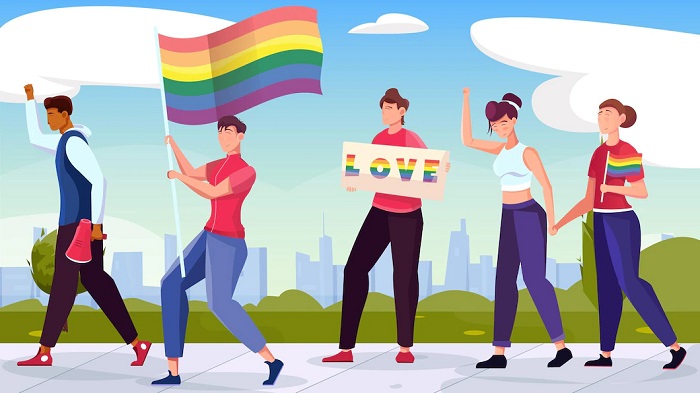
Courts in some countries have approved the same-sex marriage in their domestic laws. These amendments have been adopted first in 2001 and the latest in 2019. The Netherlands is the pioneer in the legalization of same-sex marriages and on the updates of the rules on the concept of marriage equality.
Other countries that have recognized same-sex marriage are: Belgium, Spain, Canada, South Korea, Norway, Sweden, Iceland, South Africa, Portugal, some parts of Mexico, Argentina, Denmark, Uruguay, New Zealand, France, Brazil, England and Wales, Scotland, Luxemburg, Finland, Ireland, Greenland, majority states of the US, Colombia, Germany, Malta, Australia, Ecuador, Taiwan, Austria. The Austrian Act has given a new definition about Marriage as, “the union of 2 people to the exclusion of all others, voluntarily entered into for life.”
Thus, we should assume a scenario for such new parenthood. Over the past several decades, those opposed to same-sex marriage relied primarily on arguments about children. As stated in an article in Harvard Law Review Forum, “in recent years, the primary argument went something like this: the exclusion of same-sex couples from marriage was permissible because same-sex couples cannot provide the ideal setting for the raising of children — a home with two biological parents.”
What does this imply?
To sum up, one should view and recognize ‘difference’ as normal. It seems that an anti-discrimination legislation is needed in consideration of each nation’s cultural capacity. This is much more than a court decision, as a general and whole rule cannot govern the multifaceted layers of each and every country’s society, culture, and religion.
In fact, issues under family law are not solely legally based, but include much analysis and outlook towards psychological and sociological issues. Keep in mind that pro-LGBT changes may not parallelly provide unique and updated regulations towards parenting and adoption.
What do you propose about gender identity? Does the LGBT community have the right of same-sex marriage and parenthood?
LegaMart is a global legal platform designed to connect individuals, startups, and businesses with qualified lawyers across jurisdictions. With a mission to simplify cross-border legal services, LegaMart provides users with access to a diverse network of vetted legal professionals who specialize in areas such as international law, corporate law, immigration, dispute resolution, and more.
By leveraging technology and user-friendly tools, LegaMart allows clients to search for lawyers by country, language, or legal expertise, submit their legal queries, and receive tailored legal solutions in a streamlined, efficient manner. The platform serves as a bridge between legal professionals and clients who need multilingual, multi-jurisdictional support — especially in today’s increasingly globalized legal landscape.
Whether you’re an entrepreneur launching a business abroad, an individual dealing with immigration paperwork, or a company navigating cross-border compliance, LegaMart aims to make legal help more accessible, transparent, and collaborative.

